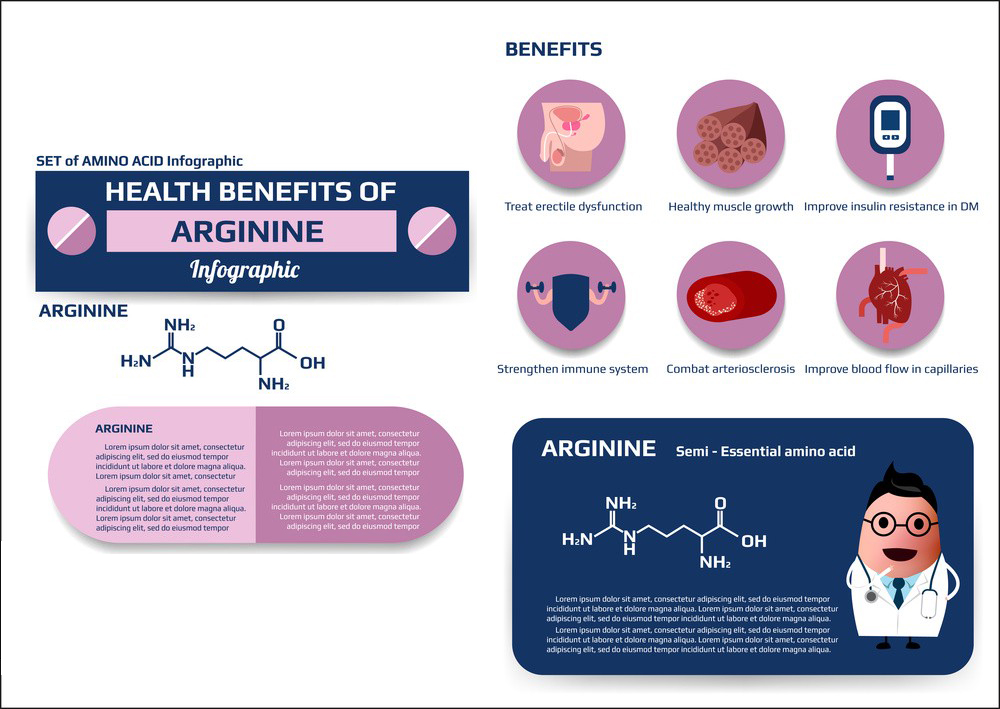L-Arginine Tablets is made of high quality L-Arginine, which is an amino acid compound. L-Arginine is an amino acid that is considered semi-essential, meaning that while the body can produce it under normal circumstances, there are situations where its consumption becomes essential, such as during times of growth, injury, or illness. L-Arginine tablets are commonly used as a dietary supplement to enhance various bodily functions. Here are some of the effects and potential side effects of L-Arginine tablets:
Effects of L-Arginine Tablets:
Vasodilation: L-Arginine is a precursor to nitric oxide (NO), a molecule that relaxes blood vessels, leading to vasodilation. This effect can improve blood flow throughout the body, potentially benefiting cardiovascular health.
Exercise Performance: Some studies suggest that L-Arginine supplementation may improve exercise performance, endurance, and recovery by enhancing blood flow to muscles and reducing lactate buildup.
Erectile Dysfunction: Due to its role in vasodilation, L-Arginine has been investigated for its potential to improve erectile dysfunction by increasing blood flow to the genital area.

Wound Healing: L-Arginine plays a role in collagen synthesis, which is essential for wound healing and tissue repair. Some studies suggest that L-Arginine supplementation may enhance wound healing, particularly in cases of pressure ulcers or burns.
Immune Function: L-Arginine is involved in the production of white blood cells and immune responses. Some research suggests that it may support immune function, although more studies are needed to confirm this effect.
Hormone Regulation: L-Arginine is involved in the synthesis of various hormones, including growth hormone, insulin, and glucagon. It may play a role in hormone regulation and metabolism.
Side Effects of L-Arginine Tablets:
Gastrointestinal Issues: Some individuals may experience gastrointestinal discomfort, such as nausea, abdominal pain, or diarrhea, when taking L-Arginine supplements, particularly at higher doses.
Allergic Reactions: Allergic reactions to L-Arginine supplements are rare but can occur. Symptoms may include rash, itching, swelling, or difficulty breathing. Individuals with known allergies to protein sources may be at higher risk.
Low Blood Pressure: Because L-Arginine can cause vasodilation, it may lower blood pressure. Individuals taking antihypertensive medications or those with already low blood pressure should use caution when supplementing with L-Arginine.

Interactions with Medications: L-Arginine supplements may interact with certain medications, including blood thinners, blood pressure medications, and drugs for erectile dysfunction. It’s essential to consult with a healthcare provider before starting L-Arginine supplementation, especially if you’re taking other medications.
Potential Hormonal Effects: Some research suggests that L-Arginine supplementation may affect hormone levels, particularly growth hormone. However, the clinical significance of these effects is still unclear.
Risk for Certain Health Conditions: Individuals with certain health conditions, such as herpes simplex virus (HSV) infection or schizophrenia, should use L-Arginine supplements cautiously, as they may exacerbate symptoms or interact with medications used to treat these conditions.
As with any supplement, it’s crucial to consult with a healthcare provider before starting L-Arginine tablets, especially if you have underlying health conditions or are taking other medications. Additionally, it’s essential to follow recommended dosages and avoid exceeding safe limits to minimize the risk of side effects.
